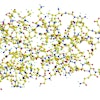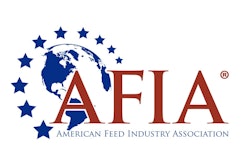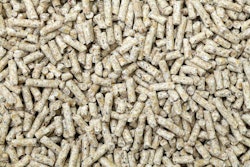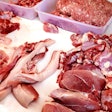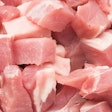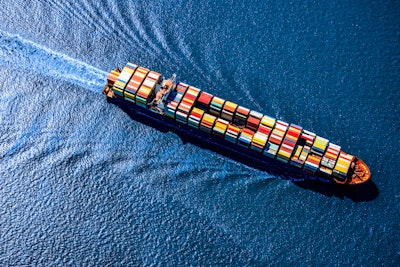
Spanish authorities have seized 620 kilos of cocaine mixed with salt that was intended for use in animal feed, according to the Customs Surveillance Officials of the Tax Agency.
The agency, working in collaboration with Colombian authorities, made the seizure in Madrid after the container traveled from Colombia to the Port of Barcelona. Seven people have been arrested in the operation, including the administrator of the importing company.
Authorities became aware that a container was being sent to the Port of Barcelona carrying cocaine mixed with the cargo, which consisted of mineral salt for animal feed. On January 8, the Barcelona Customs Surveillance Operational Unit detected a container from Colombia whose declared cargo consisted of 1,000 bags of salt and which was imported by a company domiciled in Sant Cugat del Vallés.
At that time, the cargo was inspected, and samples were extracted from different bags for analysis by the Barcelona Customs Laboratory, revealing that some of them contained cocaine. The bags with the drugs had a mark that differentiated them from the rest. Thus, a thorough inspection of all the bags was carried out, finding 34 bags with the same brand. All of them contained cocaine mixed with salt.
For this reason, the telephone number of the administrator of the importing company was intercepted by means of a court order. Thanks to these wiretaps, it was learned that the merchandise was going to be transferred to a logistics warehouse in Madrid on January 11 with the intention of storing it for a few days while waiting for subsequent unloading instructions.
In order to identify the members of the criminal organization, a monitored delivery operation was carried out for the merchandise, which left the port of Barcelona on January 11, and was unloaded in a logistics warehouse in the Free Trade Zone. On January 16, the merchandise was loaded onto another truck that took it to a logistics warehouse in Valdemoro (Madrid).
Finally, following new instructions, on January 22 the merchandise was delivered to a warehouse in Torrejón de Ardoz, where it was unloaded by three people who were in the warehouse. The unloading was carried out under the supervision of officials from the Central Mobile Brigade of the General Subdirectorate of Operations and the Madrid Regional Unit of the Customs Surveillance service of the Tax Agency.
After the unloading, in the vicinity of the warehouse, a car with three people inside was detected and it was possible to see how one of the suspects who were inside the warehouse was leaving and holding meetings with the occupants of the car. After one of the occupants of the car got out of the vehicle and entered the warehouse, and the vehicle started moving, the Customs Surveillance device intervened and detained the six people.
The six detainees are of Colombian and Ecuadorian origin. One of them had flown on January 17 from Colombia, arriving in Spain through the Barcelona airport. This person, according to the investigations, would be the “notary,” the person who supervises the delivery of the merchandise to the recipients.
On January 25, officials from the Barcelona Operational Unit searched the home of the administrator of the importing company in San Cugat del Vallés, where he was detained. The seven detainees have been brought to justice and three of them have been ordered to go to prison and the rest to be released with charges and without passports.
Customs Surveillance officials from the Tax Agency from the delegations of Catalonia, Castilla La Mancha and Madrid, and from the Central Mobile Brigade of the General Subdirectorate of Operations, have participated in the investigation.

